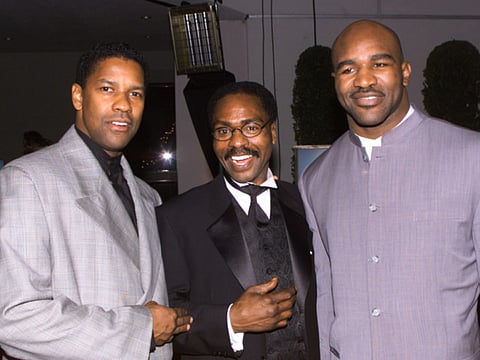Hurricane Carter, fearsome boxer wrongly convicted of murder, dies at 76
He was imprisoned for 19 years before the charges against him were dismissed

New York: Rubin (Hurricane) Carter, a star prizefighter whose career was cut short by a murder conviction in New Jersey and who became an international cause célèbre while imprisoned for 19 years before the charges against him were dismissed, died on Sunday morning at his home in Toronto, his friend and one-time co-defendant, John Artis, confirmed. He was 76.
The cause of death was prostate cancer, Artis said. Carter was being treated in Toronto, where he founded a nonprofit organisation, Innocence International, to work to free prisoners it considered wrongly convicted.
Carter was convicted twice on the same charges of fatally shooting two men and a woman in a Paterson, New Jersey, tavern in 1966. But both jury verdicts were overturned on different grounds of prosecutorial misconduct.
The legal battles consumed scores of hearings involving recanted testimony, suppressed evidence, allegations of prosecutorial racial bias — Carter was black and the shooting victims were white — and a failed prosecution appeal to the United States Supreme Court to reinstate the convictions.
Carter first became famous as a ferocious, charismatic, crowd-pleasing boxer, known for his shaved head, goatee, glowering visage and devastating left hook. He narrowly lost a fight for the middleweight championship in 1964.
He attracted worldwide attention during the roller-coaster campaign to clear his name of murder charges. Amnesty International described him as a “prisoner of conscience” whose human rights had been violated. He portrayed himself as a victim of injustice who had been framed because he spoke out for civil rights and against police brutality.
Carter’s struggle for freedom and exoneration was made famous in a number of books, a Bob Dylan song and a Hollywood film. Although born in the US, Carter had a special connection to Canada, where he settled following his prison release, which came about with the help of a group of Canadians.
Carter’s work continued until his death. In a recent letter in the New York Daily News printed in February, Carter said he was on his deathbed, but that his “final wish” was for Brooklyn’s district attorney to grant a hearing to David McCallum, a man who has been imprisoned for 28 years for a murder Carter said he didn’t commit.
Carter was cremated on Sunday and no funeral or memorial service has been planned.
Carter grew up in Paterson, New Jersey, where he had a number of run-ins with the law in his youth. He later joined the US Army and started boxing, travelling through Europe and accumulating a series of wins.
When he left the army, his troubles with the law continued and he ended up serving four years in prison, convicted of robberies and assault.
But he again turned his attention to boxing and turned pro in 1961. He began compiling an impressive record as a middleweight, scoring 11 knockouts in his first 15 fights.
Carter’s rapid-fire combinations and punching power earned him the nickname “Hurricane” and, by 1963, The Ring Magazine had rated him number 10 in world rankings. In 1964, Carter got a title shot against middleweight champion Joey Giardello. But he lost in a 15-round decision and, over the next few years, his fight record was mixed.
His career came to an abrupt end when, on June 17, 1966, Carter and his acquaintance John Artis, were arrested for the fatal shooting of two men and a woman at the Lafayette Grill in Paterson.
Sign up for the Daily Briefing
Get the latest news and updates straight to your inbox


